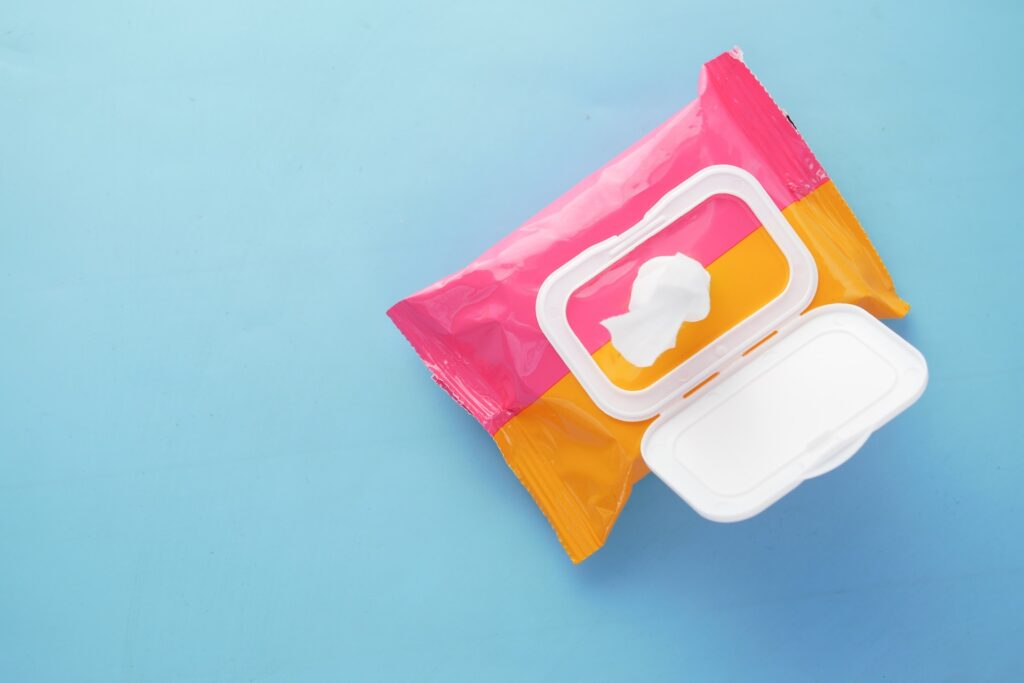Wasabi is a delicious spice coming from Japanese cuisine. People often use it with sushi, but some might have wondered if they can share it with their dogs. So can dogs have wasabi?
No, dogs should not consume wasabi. Wasabi can be harmful to dogs, leading to digestive issues and discomfort. You have to prevent your dog from eating some by accident. But there are great alternatives to this delicious spice.
- What is wasabi?
- Is wasabi bad for dogs?
- What happens if a dog eats wasabi?
- My dog ate wasabi: What should I do?
- How to prevent your dog from eating wasabi?
- Can dogs eat snacks prepared with wasabi?
- What are some alternatives to wasabi for dogs?
What is wasabi?
Japanese horseradish, or wasabi, is a herb that comes from Japan. It belongs to the Brassica family along with other mustards and horseradishes. “Commonly known as the mustard family, Brassicaceae contains some 338 genera and more than 3,700 species of flowering plants distributed throughout the world.”, according to Britannica.
Traditionally, the plant’s stem is grated and formed into a paste. This paste has a notable spicy flavor that lasts for a short time. It is commonly used to make sushi and snacks like wasabi peas.
Can dogs taste wasabi?
You might consider using wasabi in the dog diet because of the taste. And dogs can actually feel the spicy kick of this delicious spice. Their heightened sense of smell allows them to detect the spiciness. That said, dogs aren’t as capable as humans when it comes to detecting spice, and this is due to their anatomy. “Dogs have about 1700 taste buds, while human mouths have approximately 9000.”, says Dr. Teresa Manucy for PetMD.
This herb also has some known benefits acting as an antibacterial, anti-inflammatory, and anti-cancerous. But for dogs, it may cause more problems than benefits.
Is wasabi bad for dogs?
While it isn’t inherently a toxic food for dogs, this spicy paste can cause serious issues. Because it is so spicy, wasabi can cause the dog’s throat to constrict leading to breathing difficulties. It will also irritate the nose causing sneezing, and the mouth causing pain.
Besides the respiratory system, the gastrointestinal system will also be irritated. The dog may show a gag reflex or start vomiting after eating the spice. Its stomach may become bloated, with often occurrence of flatulence. There is also a possibility that the dog is allergic to wasabi and it develops an allergic reaction. In fact, wasabi and dog food allergies might be more connected than we think. An article by Wynne Parry on Live Science claims that:
| The brain-burning sensation of inhaled wasabi and the skin-crawling, maddening feeling of an itch — new research has uncovered a specific neurological connection between the two. It turns out that the molecular switch that tells your brain you have just put a little too much of the green stuff on your sushi is also crucial in responding to certain itcy irritants. |
What happens if a dog eats wasabi?
Once your dog manages to catch a bite of some wasabi, you will immediately see it get surprised by the spiciness of the paste. It will show some disgust while rubbing its snout on the floor and pawing at its mouth to get rid of the taste. You may also notice that it will start drooling excessively, sneezing, and licking its lips. Your dog may jump on you to get your attention and tell you that it is in pain. After a while, the restless dog will start vomiting and experiencing diarrhea.
My dog ate wasabi: What should I do?
Knowing the wasabi health risks for dogs, you need to react quickly after you see it eat some. Take the paste away from its reach and figure out how much it had to eat. Smaller amounts won’t cause any serious damage to the dog. Offer some fresh water to help ease the irritation. Having a bowl designated for water helps a lot in this situation.
In situations where the dog had a lot more wasabi to eat, you will notice that its situation is not getting better. Then, you will need to contact the vet and ask for help. Sometimes, the dog might need some more serious treatment and be hospitalized.
How to prevent your dog from eating wasabi?
Because of the dangers of feeding wasabi to dogs, you should work on preventing your dog from ever ingesting it in the first place. While you are eating sushi, or other food that contains wasabi, keep an eye on your dog. Don’t leave food lying around while leaving the room and letting your dog eat it. Instead, get the dog or the food with you so it doesn’t have the temptation to do so.
While storing the food, choose a place that your dog can’t reach, like a high shelf, or the refrigerator. While throwing out food scraps, make sure the trash can is secured from your dog rummaging through it. You should also train your dog not to eat stuff when you don’t allow it to. Commands like “drop it” can help a lot in this situation. The Sault Ste. Marie Animal Clinic explains how you can do this:
| To teach this command, start with your dog on a leash and some very high value treats (Tip – Don’t use kibble, we need the dog to think that the treat is better than whatever they have in their mouth!). Drop a few treats on the floor then give the command “Drop it”. The dog should look to eat the treats. Do repetitions and gradually increase the distance involved so that the dog is moving towards you to get the treats. When they are consistently moving towards you to get the treat, start adding in low level distractions (make a list of low to high value items and work your way through). |
If your dog does not listen to you and you can not train it properly, you can always hire a professional dog trainer.
Can dogs eat snacks prepared with wasabi?
Wasabi can be given in other forms other than paste. There are many popular snacks that have this spice as a key ingredient.
- Wasabi almonds are bad because of the wasabi toxicity in dogs, but also because almonds themselves are not safe. These snacks are quite rich in fats that can be a cause of pancreatitis.
- Wasabi peas are essentially roasted peas covered in wasabi. They contain a lot of unhealthy ingredients like sugar and oil.
- Wasabi seaweed is bad for dogs due to the wasabi. Even though seaweed itself is fine, the combination with the spice makes it bad for dogs.
What are some alternatives to wasabi for dogs?
There are some other great spices you can give to your dog to get a lot of benefits while avoiding the drawbacks of wasabi. Turmeric is one of those spices, known for its great anti-inflammatory properties. Cinnamon is a known spice that adds sweetness to food. Pumpkin is great for dogs with diarrhea and provides a lot of fiber and vitamins.
Can dogs have wasabi? – A conclusion
Even though its spiciness is delicious for people, the wasabi plant can be bad for dogs. It does not cause any serious intoxication, but it can cause irritation to the mucosa of the respiratory and digestive system in dogs.
When a dog eats this spicy paste, it might experience problems with its breathing and pain in the mouth. Later on, vomiting and diarrhea will be a sign that the lining of the stomach and intestines has been irritated.
Besides the paste, make sure to avoid giving other snacks made with it. If your dog does ingest some wasabi, offer fresh water and wait for other symptoms. If the situation gets bad, the best thing you can do is to ask for a veterinary advice.
FAQ
Can a puppy eat wasabi?
No, puppies should not eat wasabi at all. The food sensitivity in young dogs is higher compared to adult dogs. This means the gastrointestinal system can get damaged with smaller amounts of this spicy food.
Is it safe to share sushi with your dog?
It is not recommended to share this food with your dog. Besides the fact that dogs can not have wasabi, raw fish and high-sodium soy sauce can be harmful to your dog. The high amount of rice in sushi is also not good for dogs.
How can I make my dog’s diet more interesting without using spices?
You can do this by offering a wide variety of foods that are safe for your dog. Switch up different types of proteins, and include varied types of vegetables and fruits. Using different dog-friendly snacks can also help.
More dog nutrition resources
Here are a few other resources talking about giving certain foods to dogs and the effect they have on their health.
- Can dogs have ritz crackers
- Can dogs eat ice cream cones
- Can dogs eat vegetable soup
- Can dogs eat canned green beans
- Dog ate uncooked rice
You can find a lot more information on the types of food you can feed your dog on our site Dogisa!
What To Do If Your Dog Ate A Baby Wipe: Advice And Solutions
Dogs like to chew on things and sometimes they will get their chompers on something…
Do Poodles Pick A Favorite Person? – How To Be The Favorite
Poodles are loving and intelligent dogs that will fit in perfectly with your family. And…
Do Poodles Bite? – Reasons For Biting And How To Control It
Poodles are a cute dog breed that is very popular among dog owners. People usually…
Why do Dog Leave Odorless Wet Spots? And how to treat them
It is not uncommon for dog owners to notice that their dog leave odorless wet…
Why Does My Dog Only Have Diarrhea At Night? [How To Help]
Diarrhea is not an uncommon thing and most dogs will suffer from it at least…
A Complete Guide To The Corgi Heat Cycle [+ Tips]
Going into heat is what we refer to when we talk about periods in dogs….







